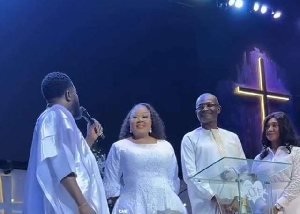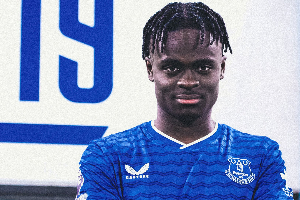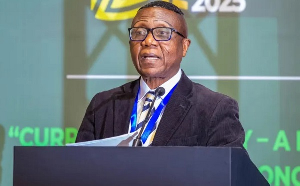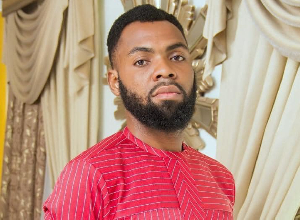Compatriots,
This article suggests that to be successful, Ghana’s comedy sector must borrow or concoct a Creolised Pidgin English format on screen, from Nigeria alongside appropriately subtitled native languages, in order to increase its audience base across Africa and the world and make money.
My friend, Kwame Dadzie laments on the social media:
‘We are always comparing our comedians to their Nigerian counterparts but we don't ask how come Nigerians have made it. I thought after Basketmouth had come to Ghana to 'teach us sense' that we should take care of our comedy, we would be much responsible but we just won't budge. Assuming we don't have any comedians in Ghana, as some have ignorantly said, what are we doing as a nation to grow that sector of the entertainment industry too? Instead of always insulting our comedians for non performance, why don't we proffer ways by which they can better their act, so together we help build Ghanaian stand up comedy?’
The fact that our local language comedy sector is thriving indicates we have good comedians in Ghana. We have had them since the days of Kwah Mensah, Kakaiku in the 1950s; Fantse Agoromba, Opia and the Jaguar Jokers in the 1970s. Those were the days when comedy was synonymous with Fantse-speaking comedians – the source of the oft irritating stereotype of Fantse people as ‘concert’ (comical) in Ghanaian social consciousness.
Although Asante speakers like actors/comedians: Rose Mensah (Kyiewaa) Lil Wyn (Kwadwo Nkansah) Agya Koo, Katawire, Bob Okala – and the late Guy Waterproof, Bob Santo and others before them - have dominated the scene in the last fifty years or so, the old stereotype endures.
These historical facts activate the question, ‘is comedy in English advantageous?’ I think yes. Nigerian comedy in ‘English’ clearly thrives over Ghana’s. I believe this is because of their more developed Creole Pidgin (by Creole I mean the merger of native African languages with European ones to create a flawlessly spoken and understood local language variety). Nigerian comedy is more assessable to Ghana/African audiences because of the Pidgin English in which they are spoken.
Nigerian Pidgin English form is made easier to understand through Nollywood films, whereas Ghanaian films are either in their native languages or rendered in straight/formal English. It is true that the Nollywood film industry considers Ghana films of better technical and linguistic quality. But this is beside the point – which is how to make more money. Thus, Ghana needs to also evolve an ethnic or even filmic-based use of Pidgin English to communicate with Anglophones worldwide. The local language sector in Kumasi (with Kyeiwaa, Agja Koo, Linwin, Nana Ama McBrown, etc) need to seriously address this linguistic imbalance in film-making asidiously.
There is a culture of Pidgin English to pick through: Pidgin English spoken by workers and soldiers; the ironic Pidgin mostly spoken by students in Ghana’s secondary schools, colleges and universities; and the stuttering ‘English’ of the uneducated, native Ghanaians. There is need to choose and enhance any of these for on-screen communication. These Pidgin English languages are distinct only in codification, style and literary content. Examples: students tend to say: ‘You plus me.’ Soldiers say, ‘Charlie de thing wey you dey do no quayass!’ ("good quois" in Arabic – an expression they picked on peace duties in Lebanon). Kyeiwaa will say: ‘Hey Jack wat yu do no guud.’ A worker will say: Charlie I no like what you de do ohhh!’ Of course most Ghanaians either speak our native languages or compromised attempts to grapple with BBC-Komla Dumor type of English!
To conclude, Ghanaian comedians must elevate their audience base, by continuing to develop local language comedy audiences - beyond the National Theatre based format – alongside the Nigerian or or an enhanced Ghanaian Pidgin English style on their screen acting. This must be attuned to Creolised Ghanaian language expressions. They must adopt ideas from the Nigerians just as Ghana-Nigeria has mutually and successfully shared ideas in their music and film industries.
Regards.
Opinions of Monday, 3 February 2014
Columnist: Kofi of Africa














